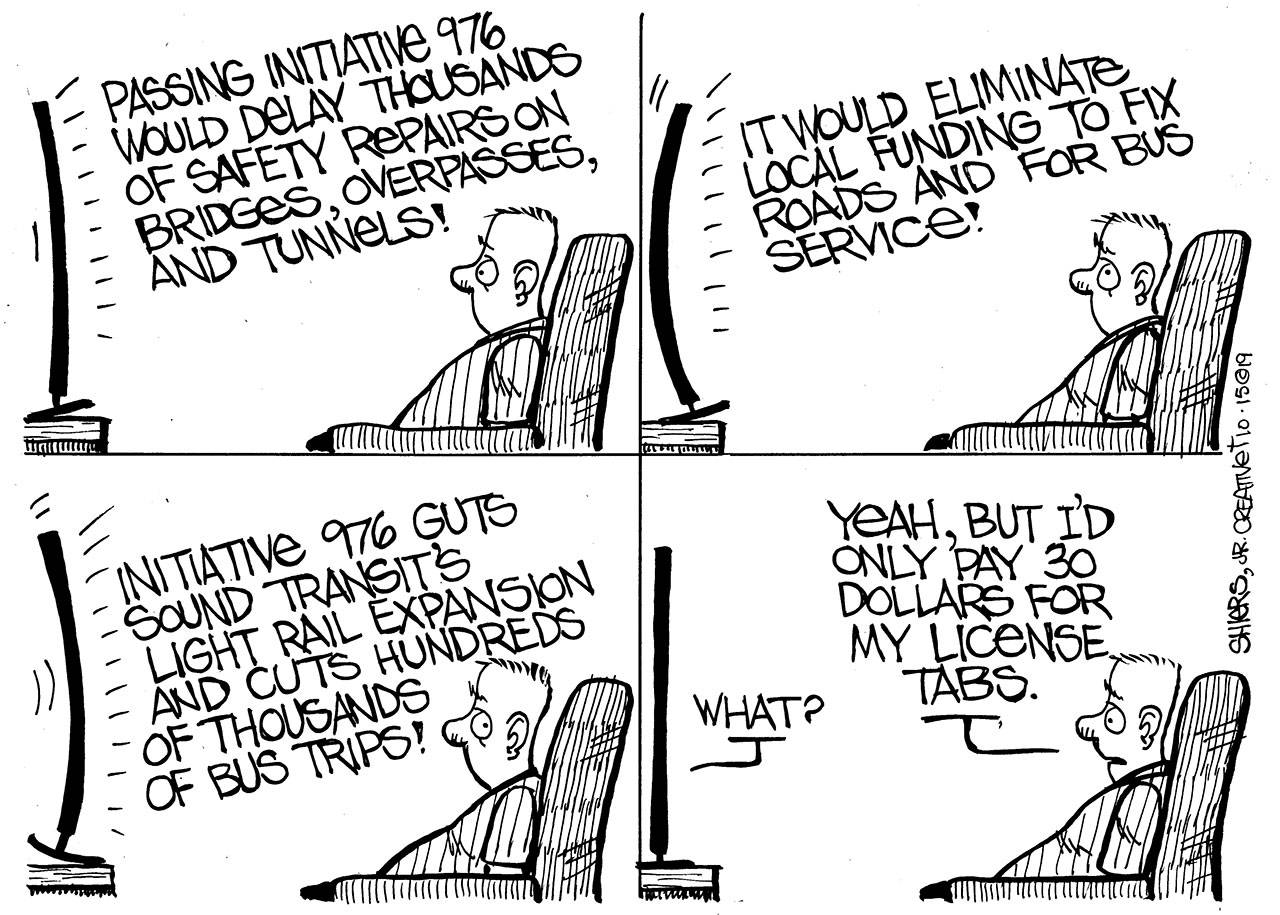OLYMPIA — In this election, critics of Sound Transit 3 are getting the do-over they’ve fervently sought.
It’s called Initiative 976.
Its presence on the Nov. 5 ballot should awaken leaders of the behemoth agency sheltered atop hubris mountain to the severity of damage suffered from spreading doubt, even among transit authority supporters.
The initiative would erase the near quadrupling of the vehicle excise tax rate approved in 2016 as part of the $54 billion expansion plan in Snohomish, King and Pierce counties known as ST3.
Voters in Snohomish and King counties were on board then. That’s why it passed. A majority in Pierce County was not. Their Republican legislative allies in Olympia tried unsuccessfully the past three sessions to give them a way out from under the excise tax burden. This initiative is their escape route.
Initiative 976 also would require Sound Transit to re-finance or sell-off billions of dollars in bonds backed by the tax, AKA the MVET. This is a notion Democratic lawmakers proposed in 2018, but it stalled.
And the ballot measure says if Sound Transit decides to ever re-establish an MVET, it must use Kelley Blue Book values for vehicles. That means ditching an outdated depreciation schedule which overvalues vehicles and whose continued use is the subject of not one but two lawsuits. Attempts to make the switch happen through legislation also failed the past three sessions.
What you have with this initiative is a punch in the nose that will cause Sound Transit to bleed a whole lot of green.
Even if voters swing and miss, those steering the regional transit authority should view it not as a victory but as a reprieve.
A defeated I-976 won’t derail Tim Eyman from targeting Sound Transit again. Nor will it divert some legislators from attempting again to forcibly change the means of calculating the MVET and method of selecting the agency board of directors.
Given the impressive pedigree of bureaucrats and politicos at Sound Transit’s helm, this should not come as a surprise.
The CEO did a tour of duty in the Obama Administration. The executives of King, Pierce and Snohomish counties are on the board of directors. They serve alongside mayors and council members of thriving cities around the Puget Sound.
Individually, they can usually see pretty clearly when faith and confidence in a publicly run institution is hobbled. Yet oddly their collective wisdom and experience seems to blind them to the slow erosion of the public’s trust in the agency they oversee.
This initiative is not about rebar spikes and rail stations. It’s about an air of haughtiness of Sound Transit decision-makers.
When vehicle owners suffered sticker shock from the soaring MVET voters approved, they responded with an unsympathetic shrug.
They resisted when lawmakers tried to cobble together a minimalist MVET rebate program. They fended off attempts by legislators to require members of the agency’s governing board to be elected directly even though there’s growing support – including among Snohomish County Council members – that it could help shore up the public’s sagging confidence.
Voters outside the Puget Sound will see Initiative 976 on the ballot and think the debate is on lowering car tabs versus fixing roads, repairing bridges and saving lives.
But for those living in Everett and Tacoma, Bellevue and Ballard, this measure is about Sound Transit, its past, present and future.
Again.
Jerry Cornfield: 360-352-8623; jcornfield@herald net.com. Twitter: @dospueblos


